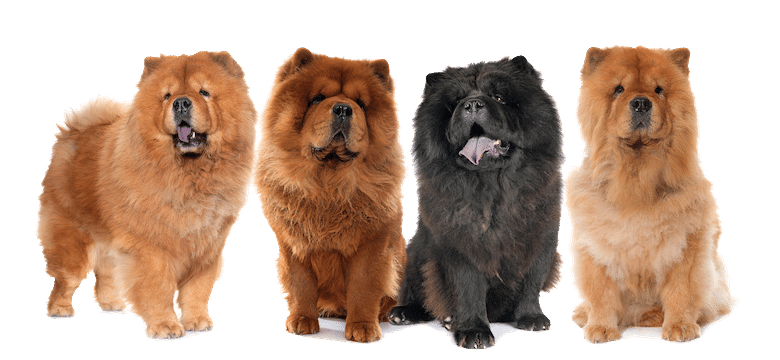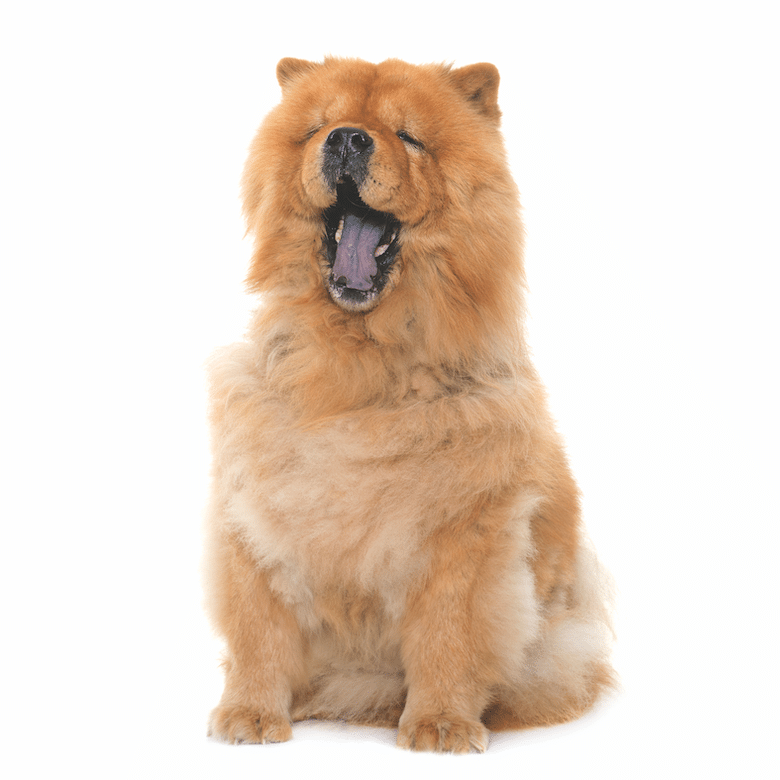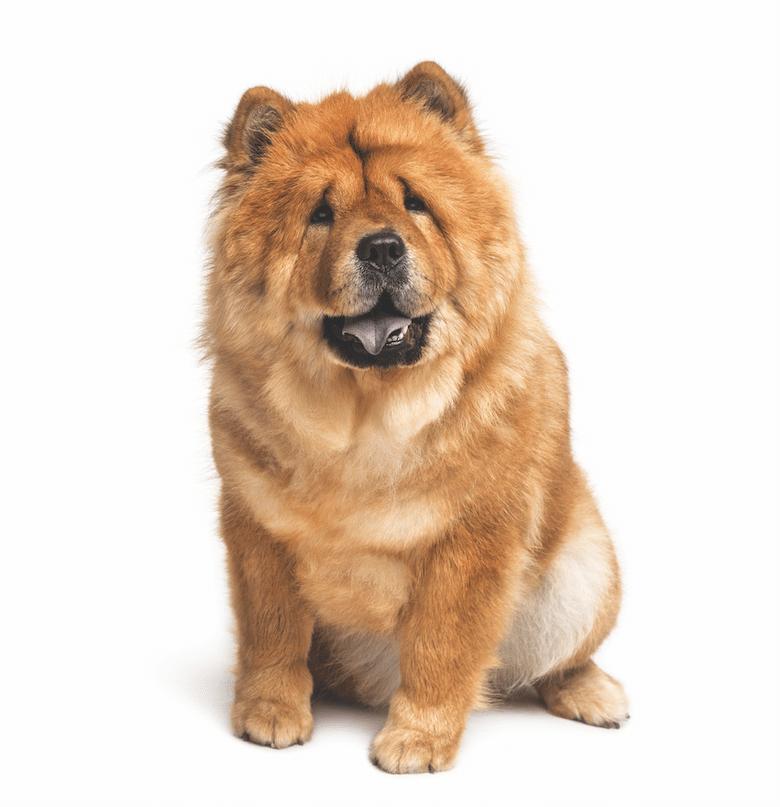The post Chow Chow by Lynn M. Hayner appeared first on Dogster. Copying over entire articles infringes on copyright laws. You may not be aware of it, but all of these articles were assigned, contracted and paid for, so they aren't considered public domain. However, we appreciate that you like the article and would love it if you continued sharing just the first paragraph of an article, then linking out to the rest of the piece on Dogster.com.
With his abundant ruff, well-known cleanliness and celebrated courage, the Chow Chow is renowned for many lion-like similarities. He’s also famous for his sovereign spirit, perpetual scowl and noble countenance. The breed comes by pride honestly:
He’s one of the oldest dog breeds, with a history of both working for commoners and serving as lordly companions to Chinese nobles. Today the Chow has an almost cat-like independent streak that somehow successfully coexists with his (dog-like!) devotion.

Photo: cynoclub | Getty Images
No newbie here
An ancient breed, the Chow was developed in China as an all-around working dog. Early Chows hunted, guarded, herded and hauled supplies for their owners. Some Chows were companions to Chinese nobles. One emperor (Tang Dynasty) apparently owned a kennel with thousands of Chows.
Sailors transporting the dogs back to England in the 19th century found a new fan: Queen Victoria. Her interest in the breed greatly contributed to the popularity in England.

Photo: Pazhyna | Getty Images
Day-to-day with a Chow Chow
The Chow is a dignified breed, commanding both respect and admiration. He usually reserves his greetings, affection and loyalty to his owners. He’s typically aloof with newcomers. To discern friend from foe, the Chow requires consistent and varied socialization experiences as a puppy. Not an excessive barker, the Chow is yet a reliable watchdog. New arrivals to the home should wait for an introduction before entering a Chow’s house or yard. This vigilant breed may chase off newcomers, especially if his owners aren’t around.
Daily walks and moderate exercise suit the Chow. He isn’t a big fan of high-stamina sports, and he enjoys indoor living (especially in hot weather). Out and about, full-grown Chows aren’t characteristically eager to play with new dogs. While intensive socialization mitigates this trait, the Chow isn’t characteristically the “play with everyone” breed.

Photo: Pazhyna | Getty Images
Time for training
Training the Chow offers challenges. Families must navigate the breed’s individuality and independence with his innate intelligence. Throughout history, the Chow was often expected to make his own decisions while working in tough environments and conditions. Even today, the Chow often thinks for himself. He certainly won’t live for human applause after executing the same old commands. In fact, his need for self-governance likely will quash his owner’s pleas for a Roll Over. And don’t even bother requesting “Shake.” Chows will be waiting for you to bow, not shake hands!
Chow Chow Quick Facts
Weight: 45 to 70 pounds
Life span: 8 to 12 years
Coat: Two coat types (both are double coated; yes, both shed): rough and smooth
Color: Black, red, blue, cinnamon or cream
Grooming: Chows are a naturally clean breed, but they’ll need regular brushing to keep their coats in top shape.
Tongue: The breed has a unique blue-black tongue.
Best for: Experienced dog owners looking for sturdy companions; owners committed to providing extensive socialization and training.
Equipment: Combs, slicker and pin brushes. And a strong arm for grooming!
Possible health issues: Overheating if over-exercised in hot weather; hip and elbow dysplasia
Proposed breed quote: “To find yourself, think for yourself.” — Socrates
Breed-specific legislation/rules: Chows may be prohibited by breed-specific legislation, or bans in hotels, homeowners’ groups or apartments.
Featured Image: IgnatenkoAleksey | Getty Images
Read Next: The Best Dogs for Cats? Try These 5 Cat-Friendly Dog Breeds
The post Chow Chow by Lynn M. Hayner appeared first on Dogster. Copying over entire articles infringes on copyright laws. You may not be aware of it, but all of these articles were assigned, contracted and paid for, so they aren't considered public domain. However, we appreciate that you like the article and would love it if you continued sharing just the first paragraph of an article, then linking out to the rest of the piece on Dogster.com.
Poop4U Blog
via www.Poop4U.com
Lynn M. Hayner, Khareem Sudlow


No comments: